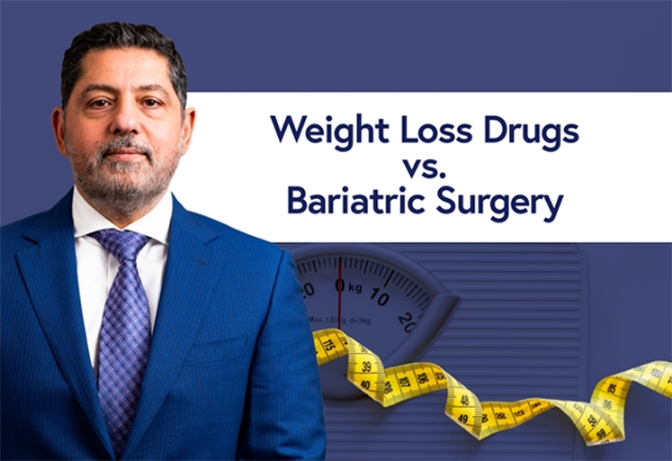Weight Loss Drugs vs. Bariatric Surgery – Which is Right For You?
If you’re trying to lose weight and finding it difficult, you may have considered taking medications or undergoing bariatric surgery. Both of these... read more
Call Us Today (732) 640-5316
E-Waiting RoomOf the youth in America, up to 6 percent are severely obese. This not only can lead to social ostracizing but can lead to long-term health costs. While bariatric surgery is often seen as expensive, within five years of having the procedure the health cost can even out, and from then on will have been less than if the patient had stayed obese. Weight loss surgery also has some of the highest long-term success of any attempts at weight loss, with less than 3% bouncing back to their original weight ten years after the surgery. Even in the first year alone, patients lost up to 31% of their starting weight, while those without surgery on average only lost 1%.
The first line of defense for obesity, diet and exercise, is unfortunately rarely successful and can even be detrimental to your health if done incorrectly. If you have too large of a deficit of calories while dieting, you risk slowing your metabolism for years or possibly permanently if the diet and exercise is too extreme. Causing a permanent shift in the metabolism when so young would force you to alter your diet for the rest of your life. Weight loss surgery has the opposite effect, causing your body to reduce the levels of amino acids. These amino acids cause insulin resistance, allowing those who undergo bariatric surgery to lessen or even the cure the effects of diabetes almost immediately.
There are many other benefits of weight loss surgery besides helping those with type II Diabetes, such as women being less likely to need a C-section, reversing premature aging and to help various obesity-related conditions like high blood pressure, high cholesterol and sleep apnea.
Not only health-related risks are related to severe obesity. Teens can face social ostracizing and stunted social growth, as well as depression and low self-worth from the bullying and isolation that could follow. It’s also important to make this decision early, around age 15 or 16, so the patient can adjust to their new lifestyle before living independently from their parents.
At Advanced Surgical, our very own Dr. Sadek is the #1 adolescent bariatric surgeon in the country. Call today for a free no-risk consultation!

Dr. Ragui Sadek is a premier surgeon who established a state-of-the-art and one of the safest bariatric surgery programs in the state. Dr. Sadek has fellowship training in both laparoscopic/bariatric surgery and surgical trauma/critical care, allowing him to safely perform complex surgeries on patients who have been turned down by other practices. As a Clinical Assistant Professor of surgery at RWJ Medical School & the Director of bariatric surgery program at RWJ University Hospital, Dr. Sadek offers a cutting-edge range of laparoscopic, robotic, & bariatric surgical procedures with a complication rate substantially below the national average.
Dr. Sadek is a Clinical Assistant Professor of Surgery at Rutgers-Robert Wood Johnson Medical School and a Fellow of the American College of Surgeons. Having performed more than three thousand advanced surgical procedures, Dr. Sadek has established a strong patient satisfaction rate and a solid reputation among the surgical community and is renowned as a top physician in his field by International Association of Healthcare Professionals. As a board-certified surgeon, he holds affiliations with the American Society of Metabolic and Bariatric Surgery and the Society of American Gastro Endoscopic Surgeons. More about Dr. Sadek
Stay current with Advanced Surgical & Bariatrics of New Jersey

If you’re trying to lose weight and finding it difficult, you may have considered taking medications or undergoing bariatric surgery. Both of these... read more

Are you frustrated with your inability to lose weight? Tired of being trapped in an endless cycle of yo-yo dieting, over-exercising, cleanses, and... read more